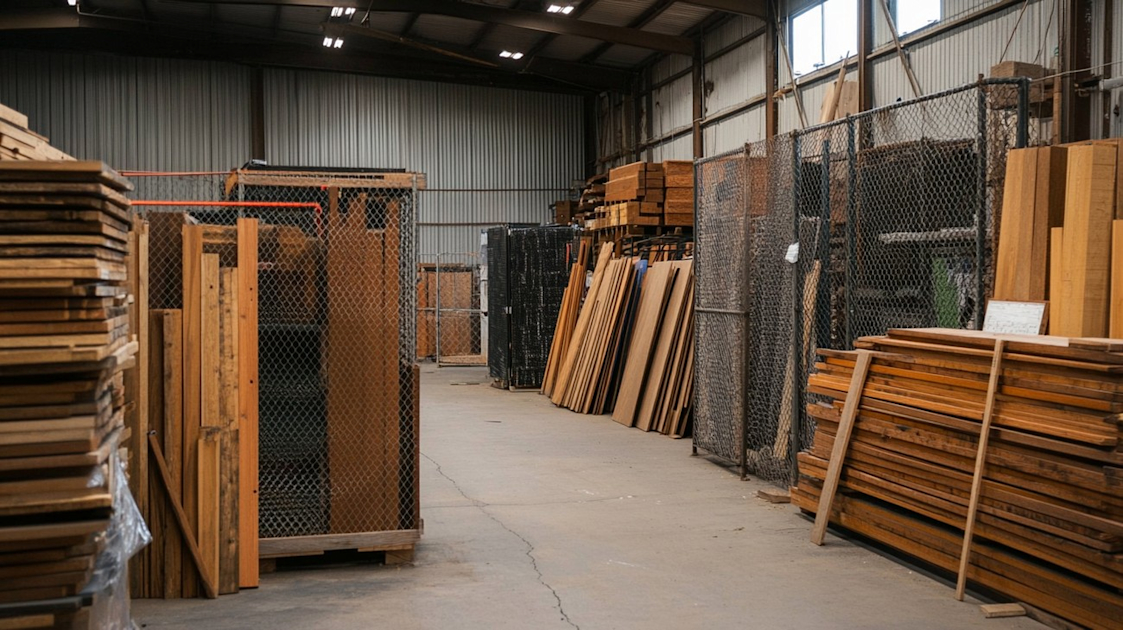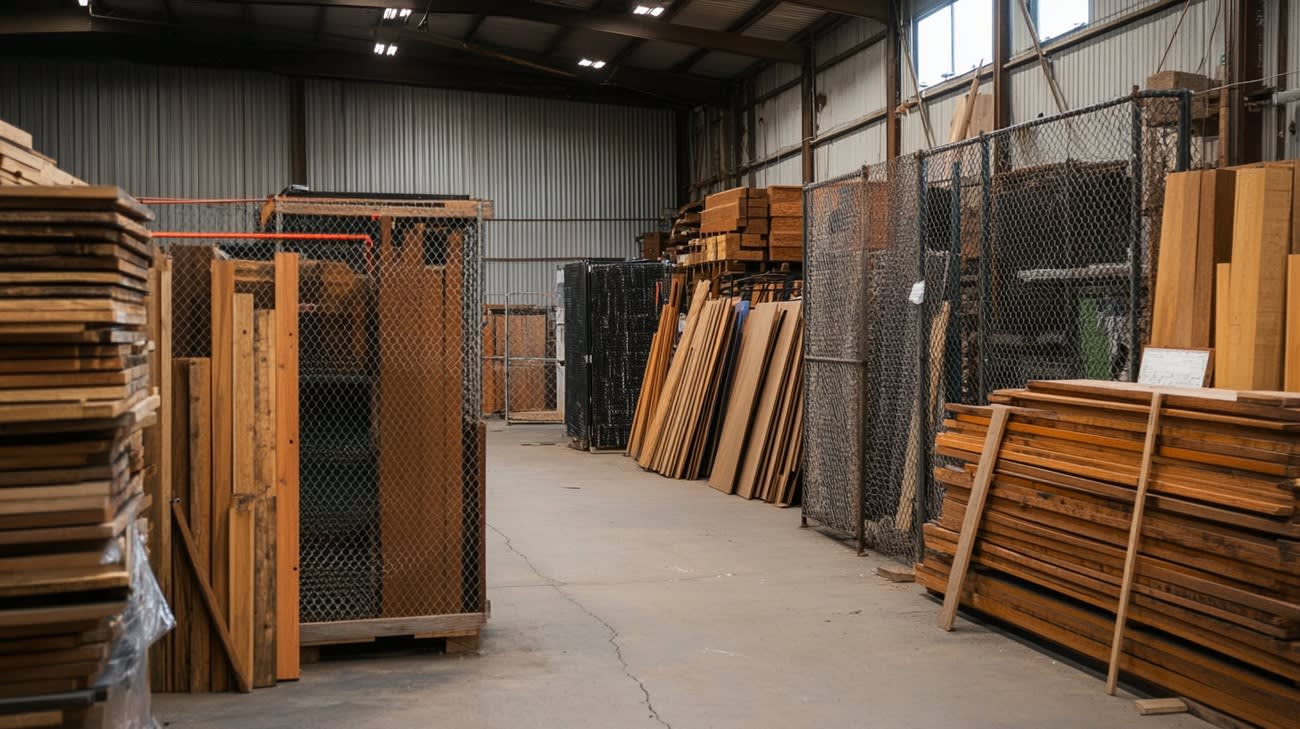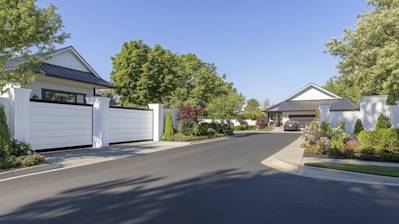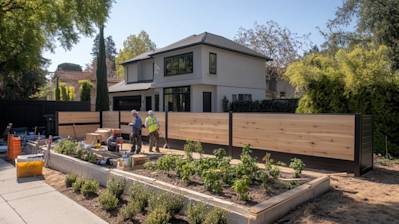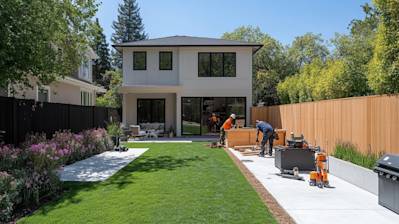When it comes to investing in a fence for your property, there are several key factors to consider. The choice of fencing materials is one of those critical decisions that will significantly impact your fence's durability, aesthetics, and maintenance requirements. Our comprehensive guide aims to help you understand better the myriad of fencing materials available and their specific features.
Different Types of Fencing Materials
There are numerous types of fencing materials, each with unique properties that make them suitable for different situations and aesthetics:
Wood Fencing
Wood is a classic fencing material loved for its natural aesthetics and versatility. From decorative picket fences to imposing privacy fences, wood serves a wide range of purposes.
Hardwoods versus Softwoods
Wood for fencing is generally divided into hardwoods and softwoods:
- Hardwoods: These are typically more expensive yet durable and include woods like oak, teak, and ash.
- Softwoods: These are generally cheaper and easier to work with. The common softwood used for fencing is pine.
Vinyl Fencing
If low maintenance fencing options are what you're after, then Vinyl fencing could be your ideal choice. It offers a clean, modern look and is resistant to pests and weather conditions.
Metal Fencing
Robust, strong, and available in myriad styles, metal fences include materials like aluminum, wrought iron, and steel. Each of these options provides a different look and functionality – from the lightweight, rust-resistant aluminum to the classic, ornate look of wrought iron.
Bamboo & Composite Fencing
More recently, sustainable materials like bamboo and composites (made of a mixture of recycled plastics and wood fibers) have become popular choices. These options are environmentally friendly and offer unique aesthetics.
Key Features of Fencing Materials
While understanding the broad categories of fencing materials is beneficial, delving into their unique characteristics can help homeowners make even more informed decisions:
Durability
Durability varies widely among different fencing materials:
- Wood: While it can be prone to damage from pests and moisture, some species of wood, like cedar and teak, have natural resistance to these issues.
- Vinyl: Vinyl fences are resistant to many of the common issues that affect wood fences. They don't rot or rust and typically can withstand harsh weather conditions.
- Metal: Metal fences, particularly those made from hardened steel or wrought iron, are some of the most durable options available.
Maintenance Requirements
Maintenance is another significant factor worth considering:
- Wood: It requires regular painting or staining to preserve its appearance and protect it from the elements.
- Vinyl: It has minimal maintenance requirements, mainly needing occasional cleaning with soap and water.
- Metal: Aluminum and wrought iron fences require minimal maintenance, but steel fences may need to be treated to prevent rust.
Aesthetics
The aesthetic appeal of fences can significantly enhance your property's look. Here are a few highlights:
- Wood: It offers a traditional look that many homeowners love. It's easy to paint or stain for personalized aesthetics.
- Vinyl: Modern and sleek, Vinyl fences help properties achieve a clean and contemporary look.
- Metal: Metal fences exude elegance and sophistication.
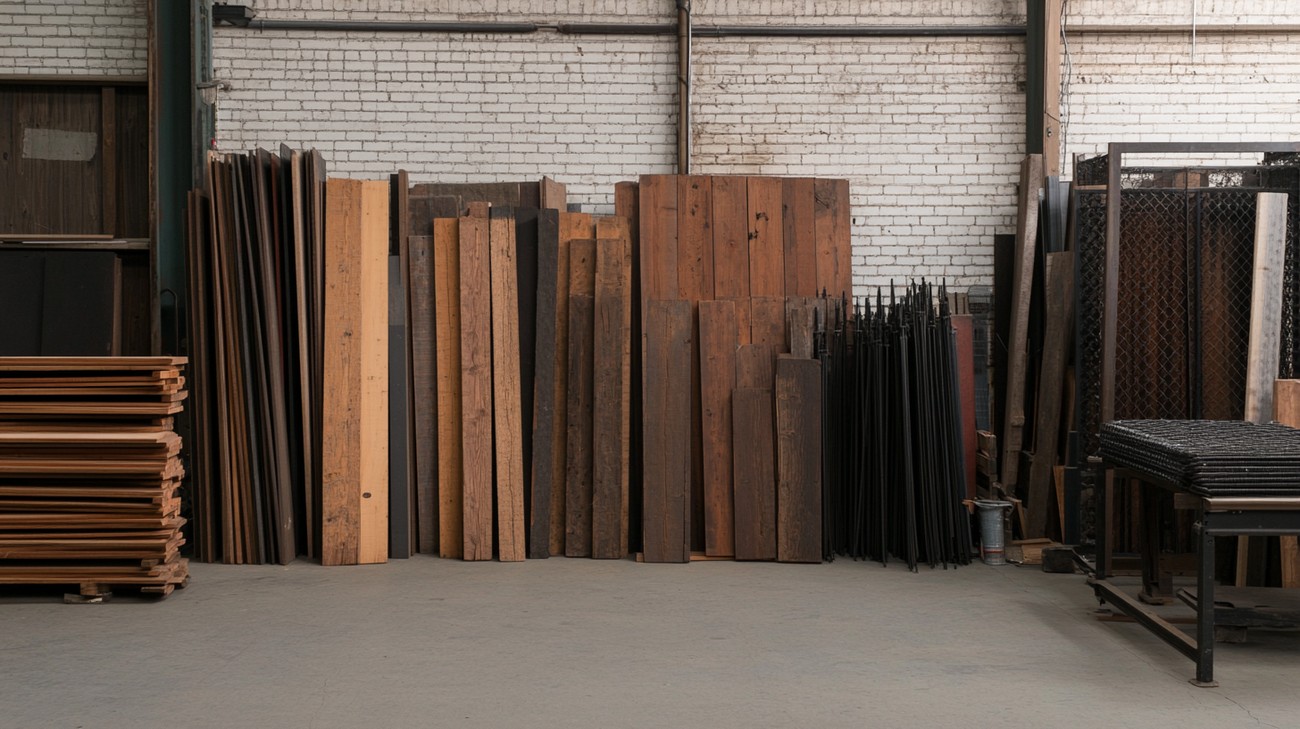
Frequently Asked Questions about Fencing Materials
Is it possible to combine different fencing materials?
Yes, it is certainly possible to combine different types of fencing materials. For instance, you might choose to use a combination of wood and iron, or perhaps vinyl and aluminum. The fusion of different materials can often result in an appealing aesthetic and potentially offer enhanced functional benefits.
How do I choose the right material for my fence?
Choosing the right material for your fence depends on several factors. These include your purpose for the fence (privacy, security, aesthetics), the amount of maintenance you are willing to undertake, your budget, and the climate in your locality. It's best to research different materials thoroughly and consider consulting with a professional to make an informed decision.
Which fencing material is the most durable?
When it comes to durability, materials like iron, aluminum, and vinyl tend to stand out. Vinyl fences are highly resistant to harsh weather conditions and require minimal maintenance, while iron and aluminum fences are robust and can last for decades.
Are synthetic fencing materials a good option?
Synthetic fencing materials, such as vinyl and composite fencing, are indeed good options for many homeowners. They offer several advantages such as durability, minimal maintenance requirements, and resistance to rot and insects. They also come in various styles and colours, allowing homeowners to customize their fences to their preference.
How important is weather resistance in choosing fencing materials?
The resistance of a fencing material to weather conditions is a vital factor to consider. Different materials respond differently to various weather elements. For example, wood could be susceptible to rot in areas with high rainfall, while metal fences might not be the best choice for coastal areas due to the potential for rust due to salty sea air. Therefore, it's critical to choose a fencing material that is suited to the climate in your locality.
Are there eco-friendly fencing materials?
Yes, there are several eco-friendly fencing materials available. Bamboo is a rapidly renewable resource and can make quite a durable fence. Composite materials, made from a mix of wood fibers and plastic resins, can be a good green choice since many are made from recycled materials.
How often do different fencing materials need maintenance?
The frequency of required maintenance for your fence depends on the material used. Wood fences, for example, need to be painted or stained every few years to protect them from elements such as weather and insects. On the other hand, vinyl and aluminum fences require little to no maintenance and can be cleaned with a simple garden hose.

Wood Fencing Materials
Pros
Natural Aesthetic
Wood fences are popular for their rustic and natural appeal. They can seamlessly blend into your landscaping and are highly customizable. Whether you're aiming for a pastoral, white picket fence look or a privacy fence, wood can be shaped to your ideal design.
Affordability
Wood is relatively inexpensive compared to other fence materials like vinyl or metal. Its easy availability makes it a go-to option for homeowners on a budget. Additionally, you save on labor costs as wood is fairly easy to install.
Easy Repairs
If a part of your wooden fence gets damaged, you can easily replace the affected slats without disturbing the rest of the fence. This translates to savings on both time and money.
Cons
Regular Maintenance
Wood fences demand regular checks and upkeep. They need to be repainted or stained every few years to ward off rot and pests. In the event of harsh weather conditions, the maintenance difficulty and frequency can increase significantly.
Limited Lifespan
Despite your best efforts, wood fences tend to have a shorter lifespan compared to their metal, vinyl, or composite counterparts. Wood is susceptible to wear and tear from the elements, insect damages, and decay.
Fading and Warping
Wood fences tend to lose their color over time due to weathering, requiring repainting or restaining. If not properly treated, wood can also warp and twist, compromising the integrity of your fence.
Vinyl Fencing Materials
Pros
Low Maintenance
Unlike wood, vinyl fencing doesn't require staining, painting, or regular sealing. An occasional wash with a mild detergent or a pressure hose is all that's needed to maintain its look.
Durability
Vinyl is resistant to pests, decay, and harsh weather conditions. It does not rot or rust, thus ensuring durability and a long lifespan.
Variety of Styles
Vinyl fences come in a plethora of styles, colors, and textures. Some even mimic the look of wood or stone, offering flexibility in design while retaining their benefits.
Cons
High Initial Cost
While the running costs of vinyl fences are low, their initial costs can be a deterrent to some. The cost of the material and the cost of installation are both higher compared to wood fences.
Difficulty in Repairs
Repairing or replacing a section of a vinyl fence can be more challenging than wood fences. If a portion gets damaged, often an entire panel needs to be replaced, which can be more costly and time-consuming.
Potential Discoloration
Even though most vinyl fences are treated with UV inhibitors to prevent yellowing, some cheaper alternatives can still become discolored over time.
Metal Fencing Materials
Pros
Strength and Durability
Metal fences, whether they're aluminum, steel, or wrought iron, are incredibly strong and durable. They can withstand harsh climatic conditions and have a remarkably long lifespan.
Low Maintenance
Apart from occasional painting or rust treatment, metal fences require less maintenance compared to wood. They are also resistant to pests and decay.
Enhanced Security
Since metal fences are harder to break or climb, they offer enhanced security. This makes them a popular choice for both homes and commercial properties.
Cons
High Costs
Metal fences, especially wrought iron and steel, are among the most expensive fencing materials. Installation costs also tend to be higher because of the skills needed to handle these materials.
Corrosion
While metal fences are built to last, they are not entirely immune to the elements. Iron and some types of steel are susceptible to rust, especially in humid climates.
Less Privacy
Metal fences are often designed for security and elegance rather than privacy. Traditional designs include bars and picket-style fences, which offer limited privacy when compared to wood or vinyl fences.

Myths and Misconceptions about Fencing Materials
The topic of fencing materials is often laden with a multitude of misguided beliefs and misconceptions that can lead to bad decision-making when it comes to choosing the best material for a fencing project. This comprehensive and detailed guide seeks to debunk the common myths and misunderstandings that surround different types of fencing materials.
Wood Fencing
Myth: All Wood is Equally Durable
One of the most prevalent misconceptions about wood fencing material is that all types of wood have similar durability. This, however, is far from the truth. Different types of wood possess varying levels of natural resistance to decay and insects. For instance, Cedar and Redwood are known for their superior durability compared to other types of wood like Pine and Spruce.
Myth: Wood Fencing is Maintenance-Free
Another common myth is that wood fencing is free from maintenance. On the contrary, wood fencing requires regular maintenance to prevent decay and ensure longevity. This includes routine sealing or painting to protect the wood from moisture and insect damage.
Vinyl Fencing
Myth: Vinyl Fencing Turns Yellow Over Time
It's a widespread misconception that all vinyl fencing turns yellow over time. In reality, this yellowing effect is usually a result of cheap, low-quality vinyl. High-quality vinyl fencing is treated with titanium dioxide, which prevents UV rays from causing yellowing or fading.
Myth: Vinyl Fencing is Weak and Fragile
Contrary to the common belief, vinyl fencing is not weak nor fragile. While it's true that vinyl is not as strong as metal, it is resilient and can resist impact better than wood. It's a durable option for fencing and can withstand everyday wear and tear.
Metal Fencing
Myth: Metal Fencing Rusts Easily
While it's true that some metals can rust, not all metal fences are doomed to this fate. Certain metals like aluminum and stainless steel are resistant to rust, while wrought iron and steel fences are often coated with a protective layer to prevent rusting.
Myth: Metal Fencing is Non-Decorative
Many people wrongly perceive metal fencing as purely functional and non-decorative. This is far from the truth. Modern metal fencing, particularly wrought iron and aluminum, come in an array of styles, designs, and colors that can enhance the aesthetic appeal of any property.
Composite Fencing
Myth: Composite Fencing Looks Fake
This myth is based on outdated information. Today's composite fencing mimics the look of real wood so convincingly that it's difficult to tell the difference at first glance. High-quality composite fencing offers the appeal of wood without the high maintenance requirements.
Myth: Composite Fencing is More Expensive in the Long Run
While the upfront cost of composite fencing might be higher than other materials, it's a cost-effective choice in the long run due to its durability and low maintenance needs. This can make it less expensive over time, debunking the myth that composite fencing is always a more expensive option.
Just as with any other home improvement project, it's crucial to do your research and rely on factual information, not misconceptions, when choosing fencing materials. By debunking these myths, we hope to clear up any confusion and help you make the right decision for your fencing needs.
Summary
So, we've talked quite a bit about fencing materials and there's no denying their importance. From wood to metal and even composite materials, the choices are vast. Remember, that while materials like wood might give a rustic charm, they do require more maintenance. Metal fences may not need as much upkeep but they can be pricier.
Diversity in fencing materials means you have the opportunity to choose based on your specific needs and aesthetic preferences. Whether you prioritize durability, easy upkeep, cost-effectiveness, or the visual appeal, there will always be a type of material that fits the bill. What’s refreshing is that, despite which material you opt for, it can dramatically enhance the look of your outdoor space while serving a practical purpose.
After all, the fence is an extension of your home and choosing the right fencing materials can be the difference between a so-so and a wow outdoor space. It might seem like a small part of your surroundings, but it plays a crucial role in defining your boundaries, providing privacy and in some cases, boosting your property’s value. So, make your choice count!
About Ornamental Solutions
Ornamental Solutions, based in Rancho Cordova, CA, are the go-to people when it comes to all things ornamental. We're passionate about bringing beauty to spaces through intricate ornamental work. With over a decade of experience in the industry, we've honed our skills for creating custom, high-quality ornamental pieces that are unique to each client we work with. Whether it's a custom piece for your home, office, or any other space, our team loves a good challenge and can't wait to help bring your vision to life. So why not add a creative flare to your space? Count on us at Ornamental Solutions, where craftsmanship meets creativity.

